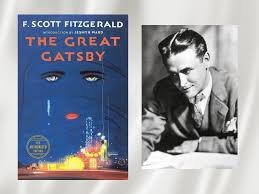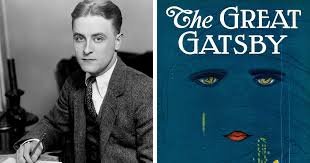The Legacy of “The Great Gatsby” and Its Author
Introduction to the Book
F. Scott Fitzgerald’s “The Great Gatsby,” published in 1925, is widely regarded as one of the greatest American novels. Set in the Roaring Twenties, it delves into themes of decadence, idealism, resistance to change, social upheaval, and excess. The story is narrated by Nick Carraway, who recounts his experiences with the enigmatic millionaire Jay Gatsby and his obsession with the beautiful Daisy Buchanan.
F. Scott Fitzgerald: The Man Behind the Novel
Francis Scott Key Fitzgerald, born on September 24, 1896, in St. Paul, Minnesota, was an American novelist and short story writer known for his portrayal of the Jazz Age. Fitzgerald’s writing captured the spirit of the 1920s, a time of economic prosperity and cultural change in the United States. Despite his struggles with personal and financial issues, his literary legacy endures through works like “The Great Gatsby.”
Impact and Legacy
“The Great Gatsby” was initially met with mixed reviews and modest sales, but it has since become a cornerstone of American literature. Its exploration of the American Dream and social stratification remains relevant today. The novel’s themes and Fitzgerald’s unique narrative style have influenced countless writers and continue to be studied in academic settings worldwide.
Modern Adaptations and Cultural Significance
Over the years, “The Great Gatsby” has been adapted into numerous films, stage productions, and even a recent television series. These adaptations keep the novel’s themes alive for new generations. The 2013 film adaptation directed by Baz Luhrmann brought renewed attention to the story and Fitzgerald’s work, highlighting its enduring cultural relevance.

Why This News is Important
Understanding Literary Influence
The discussion about “The Great Gatsby” and its author, F. Scott Fitzgerald, is crucial for students preparing for government exams as it reflects broader cultural and historical contexts. Understanding the impact of literary figures on society can offer insights into the social and historical backdrop of their work, enriching students’ grasp of American cultural history.
Relevance to Cultural Studies
Fitzgerald’s portrayal of the Jazz Age provides a lens into the societal shifts of the 1920s. For exams, knowledge of such cultural and historical shifts helps in contextualizing broader themes in literature and history, which can be crucial for subjects related to literature, history, and even general studies in competitive exams.
Historical and Social Context
Examining the historical context of Fitzgerald’s work, particularly “The Great Gatsby,” allows students to connect literary themes with historical events. This understanding is vital for comprehensive exam preparation, especially in subjects related to social sciences and humanities.
Historical Context:
The Jazz Age
The Roaring Twenties, also known as the Jazz Age, was a decade of significant social, cultural, and economic change in the United States. The period was marked by a booming economy, jazz music, and a departure from traditional norms. This era provided the backdrop for “The Great Gatsby,” influencing its themes and characters.
Fitzgerald’s Personal Life
F. Scott Fitzgerald’s own life mirrored the decadence and disillusionment depicted in his novel. His struggles with alcoholism, financial instability, and turbulent relationships informed his writing, offering a personal glimpse into the world he portrayed in his novels.
Evolution of American Literature
Fitzgerald’s work, particularly “The Great Gatsby,” played a crucial role in shaping American literature. His exploration of themes such as the American Dream, social class, and personal aspiration continues to influence writers and literary critics.
Key Takeaways from “The Legacy of The Great Gatsby”
| Serial Number | Key Takeaway |
|---|---|
| 1 | “The Great Gatsby” is a seminal work in American literature, depicting the Jazz Age and exploring themes of decadence and idealism. |
| 2 | F. Scott Fitzgerald, the author, is renowned for his portrayal of the Roaring Twenties and his influence on American literary traditions. |
| 3 | The novel’s initial reception was lukewarm, but it has since become a cornerstone of American cultural and literary studies. |
| 4 | Modern adaptations of “The Great Gatsby” highlight its enduring relevance and influence on contemporary culture. |
| 5 | Understanding the historical and social context of Fitzgerald’s work is essential for grasping its significance and impact. |
Important FAQs for Students from this News
1. Who is the author of “The Great Gatsby”?
F. Scott Fitzgerald is the author of “The Great Gatsby.”
2. When was “The Great Gatsby” published?
“The Great Gatsby” was published on April 10, 1925.
3. What are the main themes of “The Great Gatsby”?
The main themes include the American Dream, decadence, idealism, resistance to change, and social upheaval.
4. Why is “The Great Gatsby” considered a significant work in American literature?
It is considered significant due to its exploration of themes relevant to the American experience and its impact on literary traditions.
5. How has “The Great Gatsby” been adapted in modern media?
The novel has been adapted into several films, stage productions, and television series, with notable adaptations including the 2013 film directed by Baz Luhrmann.
Some Important Current Affairs Links















